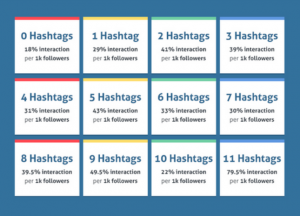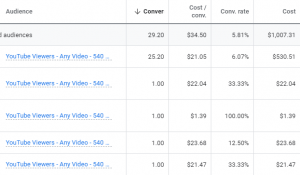 The Resume Is Not Dead
The Resume Is Not Dead
Reports to the Contrary are NOT Popular Opinion
Did you hear the one about the resume being dead? According to some ill-informed “experts”, the resume is making its funeral march. An obituary would go something like this.
Herein lies the resume. Only ever fully appreciated by a select few. This taken for granted and underutilized document was sadly misused by the masses as a droning list of mind-numbing duties (a shadow of its true self) rather than its full power as a critical marketing tool. If only more understood its real power. Survived by its cousin, LinkedIn, which replaced it in the eyes of professionals. The resume never recovered.
Don’t throw the dirt on it just yet! This piece of “career advice” floats around year after year. Long after people have forgotten the articles, the resume remains. You can thank the explosion of social media for the rumblings that this document has seen its day. But, industry and hiring practices don’t move as quickly as public opinion. The resume is still critically important and continually evolving. The talk of its demise is premature at best.
Everyone is so obsessed with whether things are dead or alive, but it’s just not that simple. I truly believe that feelings on the resume being “in” or “out” have to do with people’s own individual results. If you’re using it wrong, it’s dead for you. If you are using it strategically, it can be a door opener, a game changer. It’s the ones that get it right that have opportunity, impact, and win the game. Those who think it is dead, that it doesn’t matter, that no one cares about it, are losing the game and blame everyone but themselves.
I don’t fault the masses for their failure to use resumes to their full potential. We don’t teach people how to write it and spend very little time educating them on this necessary life skill. For that reason, the resume is something that most people don’t give credit, investment, or attention to until they find themselves under the gun needing one. Many get one from Career Services in college and think they are set for the rest of their lives as long as they update their positions now and then. That’s a real shame; since it is the only first impression you have complete control over. Perception is reality and this is your chance to set the record straight on the value you bring and how you’d like to be perceived by future employers.
The resume is far from dead and there are many reasons why this is true. The following are the most important and prominent keeping it cemented as your number one career-marketing tool.
1. Corporate America doesn’t change very quickly.
Hiring managers, corporate sourcing systems, and online application or job boards don’t evolve as rapidly as the rest of society. Building those sites, training employees on their procedures, and investing in applicant tracking systems (ATS) are all expenses which companies have spent a lot of money. They aren’t just going to chuck that out the window because someone pontificates that paper or electronic resumes are dead. They absolutely look at your digital footprint and your LinkedIn profiles before making any decisions but for the foreseeable future, most companies and job boards will require a copy of your resume to start the hiring process.
2. Networking is invaluable but always ends with “send me a copy of your resume.”
Networking is critical to a job search. Who you know can make a big impact on whether you land an interview or not, hear about openings that are unadvertised, or get your foot in the door somewhere you couldn’t break into on your own. The caveat is, even the people in your network will ask you to give them a copy of your resume to pass on to a hiring manager and for them to evaluate your worthiness as a candidate. No one just takes someone’s word on whether you would be a perfect fit. The resume is the supporting evidence they can offer when there are endorsing you or helping you to make the right connections. I’ve yet to hear anyone say send me the link to your Twitter or your Instagram profile when offering help to a job seeker. Ninety-nine percent of the time help from your network will require a copy of your resume. Don’t make your referrer look bad by giving them a poor representation of who you are, they may be putting themselves out on a limb for you. If they are talking you up, your resume must back up their claims.
3. A resume shows an employer three important things.
· You can communicate value
· You can follow directions (because almost all postings require you submit one)
· You understand what they need in their department/company/open position
People just don’t seem to know how to talk about their worth. When you get a candidate, who has it eloquently laid out on one sheet of paper that’s easily skimmable outlining exactly where they fit, they stand out from the crowd. Even if you don’t have all the requirements or are light in certain areas, most people don’t know how to write a resume effectively and you can surpass them by getting it right.
Going through resumes is a tedious process and they rarely see ones that are standouts. HR is looking for reasons to weed people out, not keep people in the pile. A strong resume gives you the chance to make the infamous cut. When it tells a hiring manager precisely what they need to know quickly and efficiently, you’ve won them over from the start.
People study to do a job, not to talk about it. They get all the instruction possible to become a professional in their field but being able to articulate their value to someone else is typically something they were never taught. Finding people that know how to communicate their worth and where they fit in is the hiring manager’s dream.
4. It’s part of a complete branding package.
Your resume doesn’t exist in a bubble. LinkedIn, social media, and in-person presentation all work to build a collective presence: the brand that is YOU. They must all work together in harmony and convey the image that aligns with your desired career or field. You will never land a job based on your resume alone, but you more than likely won’t land one without it.
5. Digital personal branding only works if you do.
Many of the loudest critics about the resume being obsolete are people that preach its replacement is digital thought leadership. You need to write articles, start a YouTube channel, create your own website, blog, etc. These are excellent things and I encourage people to do them, but most are not that ambitious, not that consumed by their profession, or are just not interested in doing something of that nature. Those people need a resume.
It is 100% OK to not want to do those things. You may be in love with the work that you do but you don’t want to blog about it. You may be an excellent writer but you don’t want to spend your time off from work writing about work. You likely have no desire what so ever be putting together an email course for followers on your weekends. For the most part, people come home from the office and their work is done until 8 am the next morning. That is real life.
The word influencer is thrown around like confetti these days but that doesn’t mean everyone needs, or wants, to be one. Your digital presence is vitally important in a job search but more for information gathering and consistency. Employers will Google you prior to bringing you in to interview. They will review your LinkedIn profile and look up your social media accounts before making decisions about you as a candidate. In fact, 60% of employers research candidates this way and 49% percent of hiring managers said they’ve found information on social media that caused them not to hire a candidate according to a CareerBuilder survey from 2016. You need to protect your online reputation, but you don’t have to go out of your way to build a digital presence with thousands of followers to be considered for jobs.
You can still be a successful in your career and as a jobseeker without being an influencer. A social media presence is needed, as we outlined here, but it can’t replace a career narrative (a.k.a. your resume) properly focused and purposefully written.
The resume may go away at some point in the future but it isn’t today and not anytime soon. No matter how you house the information, your work can only speak for itself if you put it in a format people can understand and that’s the job the resume fills. Ignore the advice to ditch your resume and you’ll be fine going forward. Everyone has a story and your resume is your chance to tell it.
Business & Finance Articles on Business 2 Community(92)
Report Post




